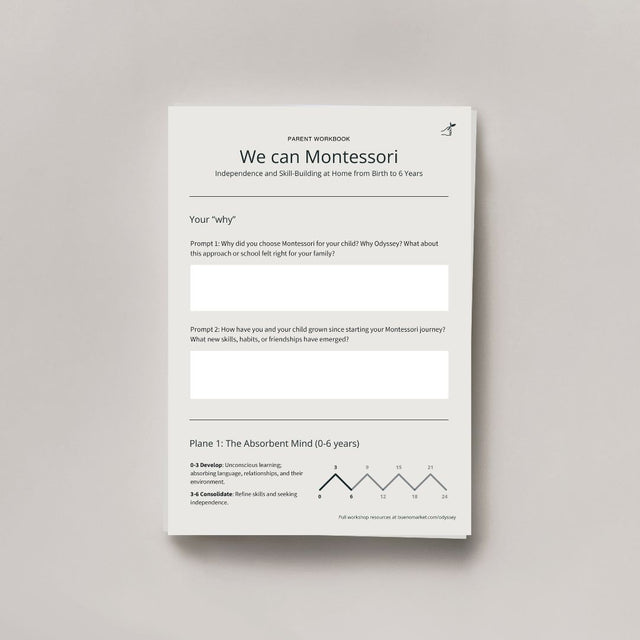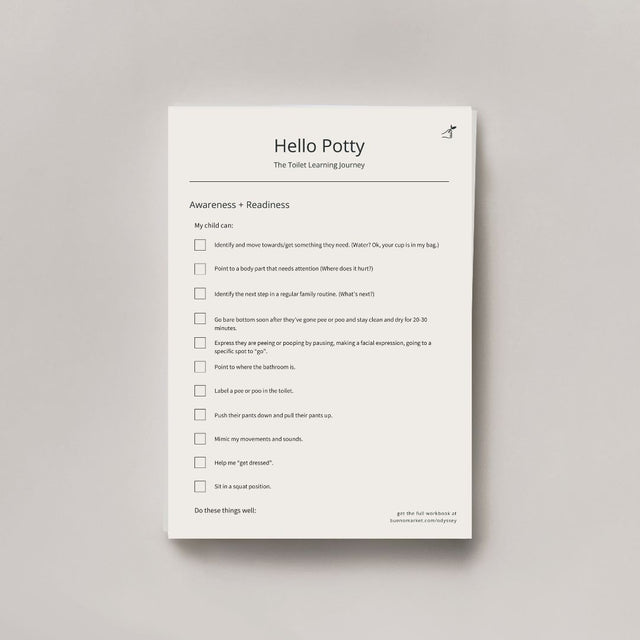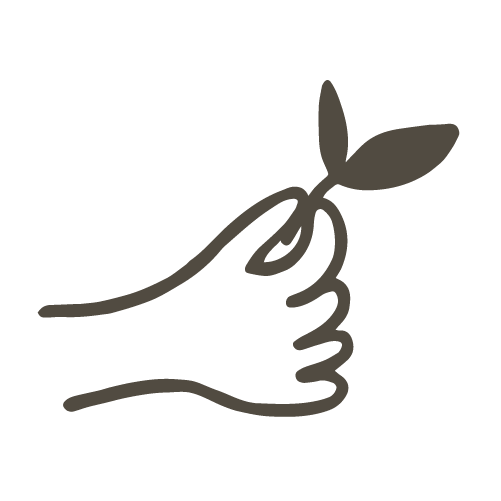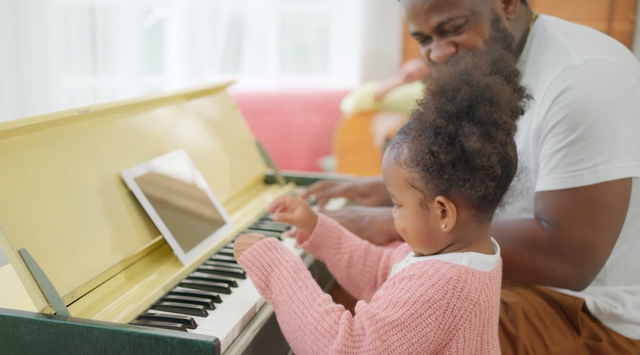Recent Workshops
We can Montessori Workshop
Revisit the workshop slides (Christie or Sorauren) and download the parent wordbook.

Start with small, intentional adjustments that invite your child to take an active role in their daily life.
This can mean one small task in part of a big process. Ex. "Let's clean this chair. Do you want to do the seat? I'll do the legs and back."
Or it can mean giving them the first or last 10% of a task. For example, if you've been getting them dressed, try something like "Hands up, shirt over your head. Ok, one hand on this side, one hand on that side. Now let's pull", and then you stop reduce your pulling and let them finish the last tug that gives them the satisfaction and confidence of contributing.
Over time they'll feel comfortable and you can let them take on more.
For more, visit our guide: What kids can do themselves from 0-6
For a list of what your child could work towards check out our guide, What kids can do for themselves from 0-6.
While the list isn't comprehensive or a reflection of what every child might be doing by 6, it gives us a way to think about skills they could be fully independent with, what they might still need some guidance with, and emerging independence you might start to notice.
Not at all!
Before independence, our children need to feel connection, and sometimes that means they join us for part of a job and then float on to work on something else while we finish. That has it's place at home in a way that doesn't happen in a Montessori class. Let's put these moments in their own category - connection building.
Then there are independence building moments where our children are motivated to practice doing something on their own. Let's look closer at this.
In Montessori classroom children are shown, via a presentation, how to complete "work" start to finish, with a set number of steps, in a particular order, that they're expected to master with practice.
Sometimes these "works" are a smaller piece of a longer sequence, such hanging clothes that another child had washed. Sometimes they are independent of any other work, such as polishing silver.
Either way, each task has a start, a "doing", and a finish.
The best part is that this mimics important life skills we hope our children master by the time they are adults, so let's borrow the structure.
We can give our children smaller jobs as part of a much bigger job, such as making cookies with prepared cookie dough (thank you to the Sorauren parent who suggested this!). The start can be getting the dough out of the fridge. The "doing" might be making the cookie shapes. The finish might be washing the mixing bowl and their hands.
We can also give them tasks they can complete from start to finish such as taking out a cleaning kit to spray and wipe the bathroom mirror and then put away. The start is taking out the kit and perhaps moving the toothbrush cup to a shelf outside the room , the "doing" is wiping the mirror, and the finish is putting the toothbrush cup back, and the kit away.
At home it can be tough to balance connection-building and independence-building moments, but recognizing that connection needs come first can help is prioritize as we create space for our children to limb the ladder of independence.
Teeth brushing carries with it a greater consequence than any other self care task. For that reason brushing may be one of the last self care items your child takes full responsibility for in late childhood or even early adolescence.
From 0-6 consider inviting your child to practice, at first with brushing and then eventually with flossing. Your child might like to go first and then have you go, or might like to go after you.
Self-care is always an opportunity for connection, so have fun playing with the silly sounds, faces, and tasks (spitting!), that self-care requires.
And remember the power of modelling your own self care. Your child might even enjoy helping you too.
Your child may continue asking for help until the end of infancy, or about 6 years old. The added benefit to this is that you get to monitor for cues about their general health, dietary concerns, hydration, and hygiene until they are older, more aware and skilled communicators.
You can encourage awareness and skills by showing them how to fold the toilet paper (For poops, we do 4 pieces in half, in half, and in half once more). And then with your hand over their hand, wipe, and look. If the paper isn't white, then repeat. While they do undies up, pants up, flush, you can already get started washing your hands to lead the way.
You don't have to practice every poop. Perhaps during the week you wipe them, and then on the weekends, you practice hand over hand.
Eventually your child will try some wiping on their own, and they'll get direct feedback about the quality of their wipe. If it's positive they'll do more on their own. If not, they make continue asking for your help for a while. During this transition you can let them know that a small bath for their bum can help with any itchy or sore skin. This gives them another way to solve their own problem and they'll ask for, or decide to have their own little bath when needed.
Progress with this task can be slow or happen all at once. And then one day you'll never be asked to wipe a bum again!
At this age, it will likely look more like "side by side" independence, where you help provide the materials and space for each child to enter their own state of focus.
They might naturally decide to collaborate, or help each other problem solve, and those spontaneous and beautiful little interactions will be a joy to witness!
Remember that cooperation skills take time to observe, understand, develop. Cooperative play (or work) emerges into the "consolidate" stage of infancy, at around 4-6 years with years or even decades of practice needed to manage different types of cooperative activities and acquire conflict management skills.
Identify the child who's having the hardest time (the most disregulated) and tend to them first, while communicating to the other child that you see how hard they are working and are helping to create space for them to continue working indepenently.
"I saw you were trying hard to cut the apple. Go ahead while I help your brother understand his frustration and find a better way to tell you."
"I see that your head hurts from your sister hitting you with the book. Are you ok? Yes? Ok quick hug? Can I come check on you once I've helped her let her feelings out safely?"
This could even be a wink, or a signal to keep going, while you tend to the child who's struggling to stay regulated.
It's hard for one adult to manage 2 disregulated little ones so just know that it can at times be messy. Remember that you can always return to self-regulation, and then co-regulation as a strategy in these moments.
I read and answer every email! Send your question to erika@buenomarket.com, and if you're willing to share your workshop experience with others, leave us a review.
Hello Potty Workshop Series
You can access Workbook 1 and Workbook 2.

Yes! Hold that excitement about starting and make your trip all about building awareness and interest.
Point out toilets, bathroom signs, create stories about everyone's toileting needs during the trip, and introduce fun song and chants.
All of the connection building and rituals will really pay off when you come back and start.
Your child seems to love telling a good joke! And let's be honest, poo/pee jokes always get a quick smile.
Here's what you can tell your little one. "Telling jokes about poo and pee is confusing. It makes me think you need your diaper changed, that you don't feel good, or your clothes got soiled by accident. Oops! Your teachers might get confused too."
Invite your child to learn some animal, food or transportation jokes so they can practice their delivery without relying on poo or pee to get a laugh.
Here are some examples to get you started:
"Knock knock." "Who's there?" "Interupting chicken!" "Interupting chi...""Squack!!!"
"What do you say to a cow who is in your way?" "MOOOOO-ve"
"What do you call a train that sneezes?" "ACHOOO-choo train."
Check out this great roundup of toddler friendly jokes from happiestbaby.com.
The body feel comfortable to relax and eliminate when it feels safe.
The bladder muscles contract when we go on our tippy-toes. And the bowels align perfectly for easy and complete elimination when our knees are above our hips.
Having a small potty that allows your child's feet to comfortably and firmly sit on the floor in front of them, and have their knees above their hips is the ideal scenario for a smooth and confident transition from diaper to potty.
Read our article "Montessori Potty Training: How to choose the right potty" for an in depth roundup of 10 considerations when choosing your first potty(potties).
Normalizing bodily processes will help your child accept, appreciate, and respect their body as well as others, and the female menstrual cycle is part of this.
You might find that your child wants to look at your undies or into the toilet when you go to the bathroom, be around when you get changed, and even help replenish your supplies at the store.
Your child might be seeking your reassurance that you are safe and well. They might also be curious about why it looks different from their toileting.
Embrace their interest by explaining in simple terms that female bodies produce and egg each month in preparation to make a baby. When the egg doesn't get fertilized by a male, the body keeps itself clean and healthy by sending it out in preparation for the next egg.
Use simple, matter of fact language. The younger, the more simple. But you night be surprised at how much your little one wants to know, and how seriously they take this very special information.
"Yes, I'm on day 1 of my cycle. My body knows that my egg wasn't fertilized, so now it's making room for a new egg."
"No, it doesn't hurt. I can feel my uterus squeezing. Kind of like when you make a poo you feel a squeeze. It just happens. Sometimes it feels like a big squeeze so I take 3 big breathes like this - 1...2...3. And then it feels better. Want to try with me?"
"Every mama animal has tiny eggs in her body that need fertilizer from a daddy to grow into a baby. Dogs. Cats. The birds in the nest at school. And yes, like mama spider we saw yesterday on the flower. What a lovely mama."
"When you're older, your brain will release hormones that get your body ready to make babies too. I'll help you understand and feel prepared for it. It helps when you know what to expect right?"
"No it's not pee. I know it looks like it's coming from the same spot, but it's not. The pee comes out of my urethra. My menstrual cycle starts in my uterus and comes out from my vagina, which is between the urethra and the anus - yep, that's right. In the middle. That's the same tunnel that babies come out of right? Do you remember how I told you that you grew in my uterus? That's at the top of the tunnel."
Using anatomically correct words not only helps our children build and accurate model of how the body works, something young children are naturally keen to learn, but is also an important part of their ability to communicate boundaries and body safety.
Partially - Yes and no.
The cottage is a great time to build lots of awareness and practice diaper free time. Right after a poop, try letting them go diaper free, in undies, or a bathing suit, so your child to feel and see every time their body eliminates. Use it as a time to narrate the toileting needs of everyone around you. Let them see and help other kids using the potty or toilet by getting toilet paper or unwrapping the soap so everyone can wash their hands. Talk about all the animals toileting needs and stop to observe as many poops as you can, wondering, hmmm, which animal made that nature poo?
That said, the cottage isn't a time to transfer ownership over to your child, expecting them to be able to focus and build capacity to independently make it to a potty. To do that, they'll need your undivided attention to support to build their confidence in those first few days.
However, when you come back from the cottage and are back to your regular routine, it's a great time to build on all of the awareness and interest by transitioning to a potty at that point.
After 24 months children transition to a new awareness of themselves and others as they make their way out of the discover phase to the consolidate phase of the absorbent mind. The develop and independent sense of self, separate from their parents and exercise their increasing autonomy.
Part of this is deciding when they will go to the potty or not.
Totally normal. Totally frustrating.
Try this: take the stance of helping your big kid "know" if their body needs to go or not.
You can try listening or looking games like:
1) Listen and guess what you hear Hmmm...I'm guessing a toot, but no poop. Oh I was wrong!
2) Don't look until they are done. Surprise! What's in the potty this time.
3) Guess the size (Will it be a tiny, small, medium, or big pee or poo? Let's see!).
4) Same same? I'll go, and you go, and then we'll see if it's the same.
You can also make use of your child's strong desire for increased independence by requiring a potty visit before teaching, practicing, or going somewhere. "I'll wait right here. You go to the potty. And then we'll be ready to go scooting."
Their resistance isn't a reason to back away from potty progress. It's more likely that they'll appreciate even more autonomy around their toileting routine like checking that there's always an extra TP roll, washing and folding their undies, and making sure the whole family has used the bathroom before a trip.
This adjustment stage won't last long. Once you find a way to collaborate with their maturing brain, you'll see the potty willingness come back bigger and more independent that before.
Plane travel with a newly potty independent toddler that supports their learning and progress is totally doable.
Here's the risk when you pop on a disposable pull up: toddlers can see this as lack of confidence in their abilities, or permission to rely on diapers again, slowing their motivation to be potty independent and could lead to potty refusal.
Ideally you're able to lead them with confidence into this new challenge.
You would pack extra clothing, and if a miss happens, you'd wipe your child down with a paper towel in the bathroom, pop their soiled clothes into a wet bag, change into dry clothing, and move on with the adventure.
But, travel can be stressful enough so if you're big time worrying about how to navigate travel with a newly potty independent toddler, you aren't alone.
The good news? You're not alone! And you have options to support you and your toddler:
1) Bring a potty. You would not be the first to pop out a potty on the floor at security/customs or into the isle of the plane on a busy flight if the bathroom is occupied. It's a worthwhile backup plan to avoid soiled clothing. Just remember to pre-fold some TP to pop into the bottom of of the potty to absorb liquids so they don't spill before making it to the bathroom to dump and rinse. Tip: pack the potty it in a wet bag/plastic bag with a towel to wipe it down after you rinse it so you're not travelling with a wet potty.
2) Bring a puppy pad, or washable waterproof pad to place under their bum in the stroller, while seated at the gate, or in the airplane. A little protection can put us at ease.
3) Let staff know at security, on the plane, and at customs. They're often happy to offer extra support and accommodations like hoping out of line to use the potty and pointing out the next nearest bathroom.
4) Anticipate transitions such as needing to get out of the stroller for security, by getting out of the stroller just before and going to the bathroom then, or staying on the plane until it's empty to use the potty before customs. Don't allow your child to snack/drink during waiting times - instead give them something to manipulate with their hands and play with them - eye spy, finger/hand games, books, and songs.
5) Set a time to help you remember your child's natural timing (ex. every 30 mins) as it's easy to loose track at the airport/ in the airplane.
5) Make use of "First this, then that.". "First let's see if your body needs to pee, then we can go look at the big planes. Let's go quickly before the next plane comes - do you remember where the bathroom is? Hmm what does the sign look like? Yes - you spotted it!"
6) Own the vibe - find ways to make it fun, keep toileting accessible for them, and tell them how well they are doing.
Most importantly is knowing that your child will feel good if you feel good. When you've prepared with a plan that works for the whole family, and execute with calm confidence, they'll better be able to tune in and voice their own needs.
The quick answer is, when they/you see a pattern of dry nights and feel motivated to try.
But if you'd like a little more support deciding, you can use the following questions to gain more insight:
Are they currently wearing diapers to bed every night?
Do she want to? Or are they resisting?
Are they having any dry nights? If so, how many in a row?
Are they waking to pee at night?
Are they visiting the bathroom first thing in the morning to pee/poo?
You're always welcome to email me or schedule a Pep Talk for support planning next steps.
I read and answer every email! Send your questions to erika@buenomarket.com, and submit your feedback here.
More Montessori-at-home support
Mindful Mondays
Just the weekly practice: 1 minute, 1 mantra, 1 powerful parenting insight sent to your inbox every Monday to grow your Montessori mindset.
Parenting As A Practice Newsletter
Receive 1 monthly article along and stay up to date on Bueno Market and the Emmi app.
Parenting Pep Talks
If you've done the work but wish you had a Montessori friend on speed dial, we've got you! Overcome bumps in the process and know that you're on the right track.
Montessori-at-home Consulting
Trying to create a prepared environment but short on time or attention? Get actionable plans tailored to your family goals that fast track your Montessori-at-home progress with our consulting services.
Your feedback matters
It was joy diving deep into Montessori at home with you. The laughs at the awkward and silly process and your candid questions were so much fun. Thank you for sharing with me!
Please take a moment to share your experience and help our company grow to support more families like yours!
Submit a review before Dec. 14th to be entered into a draw to win a free 30-minute Pep Talk + a free forever membership to the Emmi app. The winner will be announced Monday Dec. 16th!


